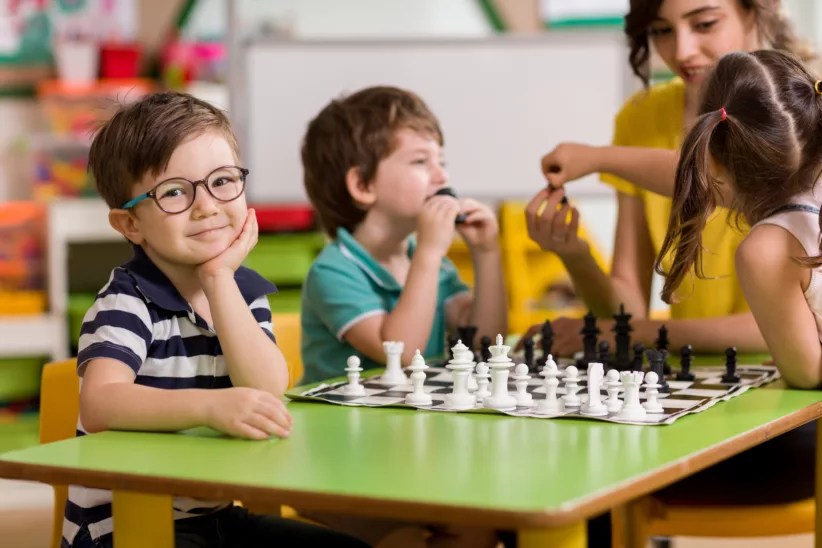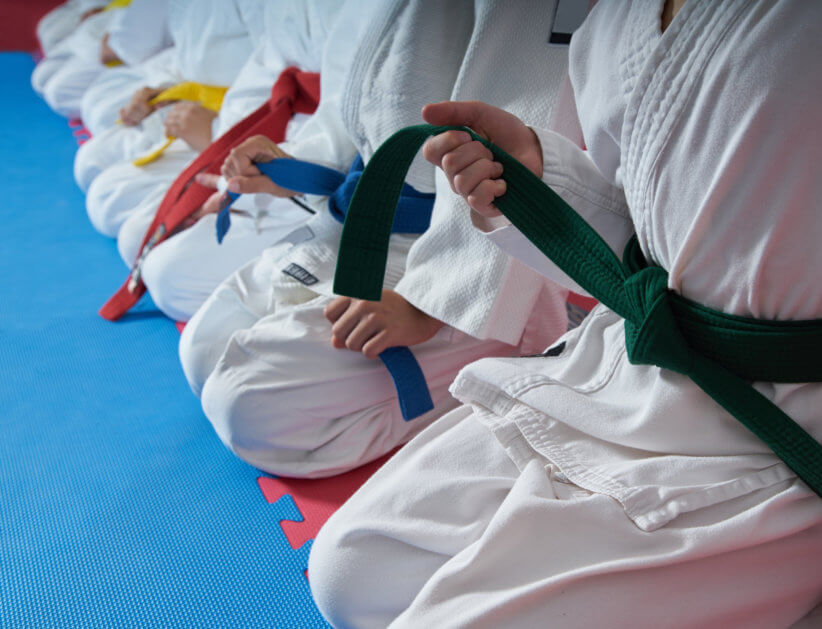Brooke de Lench was watching one of her sons play in a high school football game, and what she saw worried her. He looked slow. Confused. Uncoordinated.
No one else seemed to notice, but she saw enough to set off alarm bells. It wasn’t just that he was having an off day. A visit to the doctor later confirmed her fears — her son was suffering from the residual effects of at least one concussion, and possibly more.
“I was told to never let his head be in a collision again,” says De Lench, the founder of MomsTeam.com, a website whose mission is to empower parents of young athletes through information and resources. While her son recovered, De Lench has made a career of spreading the word about the dangers of concussions and other sports injuries.
The spotlight was refocused on concussions just before the Super Bowl, when former professional football players attempted to band together in federal court, claiming the concussions they suffered as players cause dementia, degenerative brain diseases, depression, and other mental ailments. At least 300 former football players are plaintiffs, claiming that the NFL didn’t warn them of the long-term risks of repeated head injuries.
Well, the word is out — and it has been for a while. The question is whether parents and youth coaches are paying attention.
Kids continue to suffer concussions and return to play far sooner than they should on sports fields all across the country. Sometimes players and parents wrongly believe that it shows strength and courage to play injured. Battling pain is often glamorized. But in doing so, young athletes risk their health, their future, and even their lives.
“I think parents really need to understand the ramifications,” says De Lench, who is also the author of “Home Team Advantage: The Critical Role of Mothers in Youth Sports.”
Concussions can happen in any sport, not just football. They occur in soccer, baseball, lacrosse, basketball, wrestling, hockey, cheerleading and volleyball, among other sports. No activity is immune. With kids playing harder than ever in today’s ultra-competitive world of youth sports, it only makes sense.
Concussions are brain injuries that occur when a blow to the head or body causes the brain to move rapidly inside the skull. Concussions can also be caused by a fall, or a collision between players or with an object, such as a goalpost. Even a mild blow to the head — a ding or getting your bell rung — can have serious consequences.
Recent research has shown that because of the way their brains are growing, adolescents are more sensitive to the effects of a sport-related concussion than adults or children.
“The frontal regions of the brain are more vulnerable to concussions. These areas oversee executive functions responsible for planning, organizing, and managing information. During adolescence, these functions are developing rapidly, which makes them more fragile to stress and trauma,” says Dave Ellemberg, a neuropsychologist who oversaw the study published in the journal, Brain Injury.
In addition to long-term damage, young athletes who have suffered a concussion are at risk of second impact syndrome, a rare but usually fatal condition. If a child who has not completely recovered from a concussion receives a second blow to the head, it can cause massive swelling in the brain that can lead to sudden death.
Various studies reveal some frightening numbers: Forty-one percent of student athletes returned to play too soon after a concussion, according to guidelines of the American Academy of Neurology. The study found that a shocking 16 percent of high school football players who lost consciousness during a concussion returned to the field the same day. More than 20 percent of concussions in boys’ and girls’ soccer and basketball were repeat concussions. In fact, 16.8 percent of high school athletes suffering a concussion had previously suffered a sport-related concussion, either that season or in a previous season.
De Lench, a former athlete herself and strong supporter of youth sports programs, understands the pressure for kids to return to play.
“Kids should not be pulled out of sports. Sports are critical — critical! — for some kids. Pulling them out is not the remedy here,” she says. “We need to empower parents to make sure coaches are trained properly, to make sure kids get the right kind of physical training — such as neck-strengthening — and to make sure kids are taught to self-report symptoms.”
While some school districts around the country are requiring young athletes to undergo cognitive testing prior to participating, so they can have a “baseline” to determine when a player can safely return to play, such information is only useful if students understand the importance of reporting symptoms, and if parents and coaches are vigilant about taking note of possible injuries.
So what are the most important things a parent — and coach — should know about concussions? First, seek professional medical attention if your young athlete shows any sign of injury, such as appearing dazed, stunned, confused, or clumsy, or if he exhibits a loss of memory, mood and behavior changes, or even a brief loss of consciousness. Some symptoms may not show up for hours or days, so parents need to be tuned in.
A young athlete with a diagnosed concussion should not be allowed to return to play on the day of injury, regardless of the medical resources available or his level of athletic performance. All concussion management guidelines, old and new, agree that no athlete should be allowed to return to play while exhibiting post-concussion signs or symptoms. Some call for at least one symptom-free week before returning to practice or play. Because activities that require concentration and attention might exacerbate the symptoms and delay recovery, children should limit exertion and school-related activities until symptom-free (e.g. no homework, no text messaging, or videogames, and staying home from school).
For young people ages 15 to 24, sports are second only to motor vehicle accidents as the leading cause of brain injury, according to the U.S. Centers for Disease Control and Prevention. But even far younger children have suffered concussions on the field and on playgrounds.
“The more parents know, the more they can make a difference,” De Lench says. “I always tell parents to think about the life-cycle of their child. Think about how that child will feel when they are 30 or 40, and they have cognitive issues or pain from injuries. You, as a parent, need to understand that you are the guardian of your child and their future.”
Additional information on concussions and youth sports, including an online training course for coaches, can be found on the U.S. Centers for Disease Control and Prevention website at www.cdc.gov/concussion/sports/index.html. For more, visit www.MomsTeam.com.
KiKi Bochi is the mother of two and an award-winning writer and editor who specializes in family topics.





















